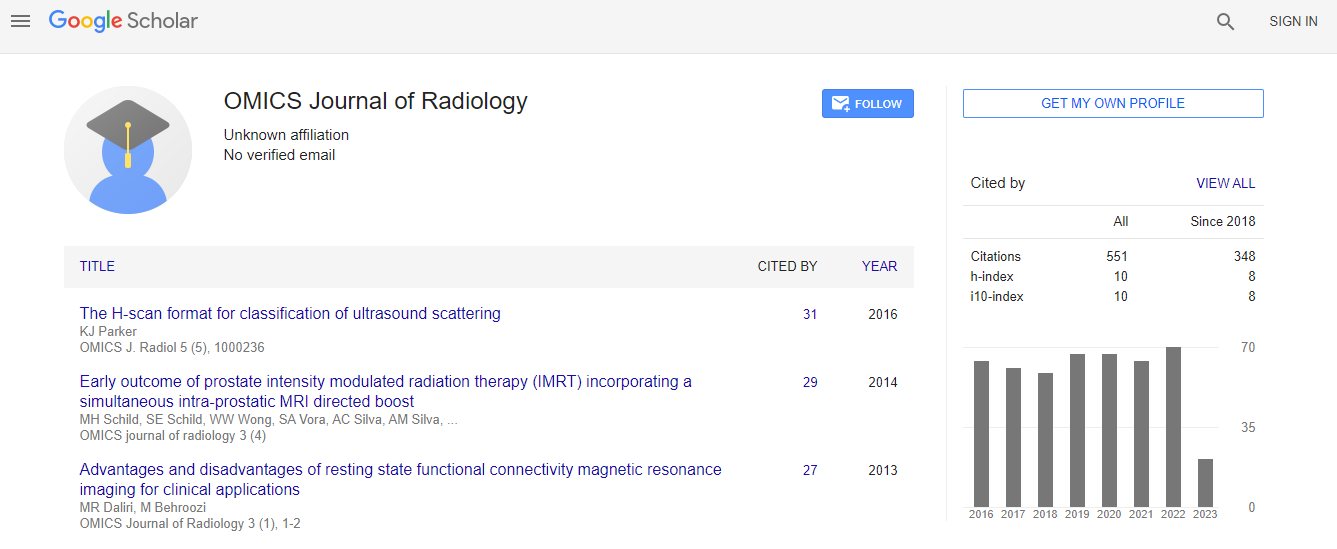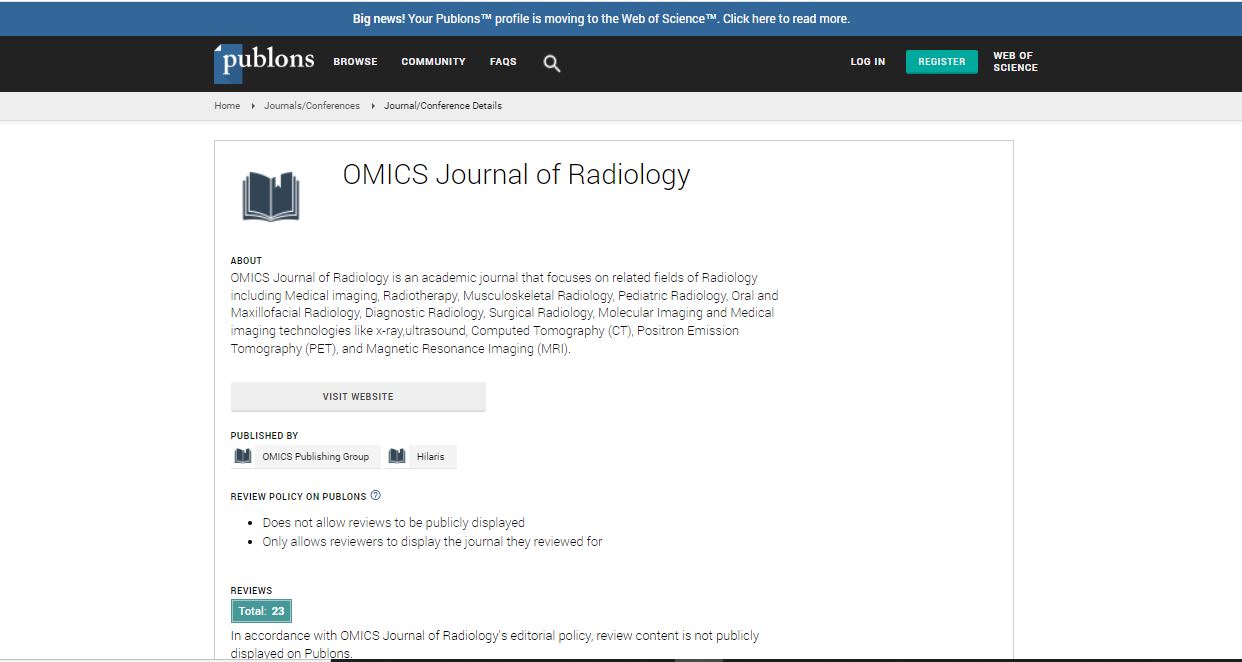Our Group organises 3000+ Global Conferenceseries Events every year across USA, Europe & Asia with support from 1000 more scientific Societies and Publishes 700+ Open Access Journals which contains over 50000 eminent personalities, reputed scientists as editorial board members.
Open Access Journals gaining more Readers and Citations
700 Journals and 15,000,000 Readers Each Journal is getting 25,000+ Readers
Google Scholar citation report
Citations : 551
Journal of Radiology received 551 citations as per Google Scholar report
Journal of Radiology peer review process verified at publons
Indexed In
- Index Copernicus
- Google Scholar
- Open J Gate
- Genamics JournalSeek
- ResearchBible
- Electronic Journals Library
- RefSeek
- Hamdard University
- EBSCO A-Z
- OCLC- WorldCat
- SWB online catalog
- Virtual Library of Biology (vifabio)
- Publons
- Geneva Foundation for Medical Education and Research
- ICMJE
Useful Links
Share This Page
Assessment of the appropriateness of out-of-hours MRI spine imaging referrals for metastatic spinal cord compression
World Congress on Radiology and Oncology
Melosa D��?souza, Mariyah Selmi, Thomas Rogers and Navin Khanna
Royal Oldham Hospital, England
ScientificTracks Abstracts: OMICS J Radiol
Abstract
Background: Metastatic spinal cord compression (MSCC) occurs when a tumour spreads directly to the spine, or from collapse of the tumour-infiltrated vertebra, resulting in spinal cord compression. This often presents as a neurological emergency with irreversible damage occurring within hours or days. Rapid assessment, diagnosis and referral to a specialist centre is vital to prevent this. Current NICE guidelines set out specific criteria to identify cases requiring urgent imaging and management. Patients with known or unknown malignancy which meet this criteria must be scanned urgently within 24 hours. Aims: We aimed to identify which out-of-hours referrals for MSCC met the current NICE guidelines, in order to ensure proper use of limited out-of-hours resources. Method: Retrospective audit of trust wide MRI whole spines conducted between 5-9pm on weekday and 8am-9pm on weekends. We analysed 5 years of data from 2012 to 2016 inclusive. Patients are characterized into 3 groups: (1) Appropriate referral for 24 hour MRI, (2) Inappropriate referral for 24H MRI (no neurological symptoms) and (3) Insufficient clinical details. Results: A total of 276 MRI scans were performed out-of-hours. Of these, 215 scans were 24-hour urgent MSCC requests. 67% of these requests were appropriate (group 1), whereas 15% were inappropriate (group 2) and 18% contained inadequate clinical information (group 3) to justify the imaging request. Of all the out-of-hour scans, only 3% showed a MSCC requiring urgent neurosurgical assessment. 9.7% showed spinal cord compression secondary to alternative pathology, for example, a disc-osteophyte complex. Of the group 2 and group 3 referrals, only 1.4% demonstrated MSCC. Discussion: Radiology on calls are busy; acquisition of adequate images and subsequent reporting of MRI scans is time consuming; additionally, MRI scans are expensive, therefore to efficiently use the time and resources of the on-call radiology team, strict referral pathways and vetting systems need to be in place. Our study showed 54% of groups 2 and 3 had insufficient clinical data to determine whether a 24 hour scan was warranted. For example, some of the referrals had no mention of the presence of neurological symptoms, making it difficult to determine the necessity of an urgent scan. In order to streamline this, we developed a proforma with stricter criteria, which adheres to the NICE guidelines, as part of the vetting process. This has received promising feedback. Conclusion: To ensure that, patients with an oncological emergency are assessed, managed and treated appropriately, out-of-hours MRI resources need to be used appropriately. This involves meticulous vetting of the requests to ensure inappropriate referrals are not reducing availability of valuable out-of-hours scans.Biography
Melosa D’souza has completed her MBBS iBSC from University College London. She has a keen interest in Raiology with a specialist in management of Oncological emergencies. She is currently working at the Royal Oldham Hospital, Pennine Acute NHS Trust, UK.

 Spanish
Spanish  Chinese
Chinese  Russian
Russian  German
German  French
French  Japanese
Japanese  Portuguese
Portuguese  Hindi
Hindi 
